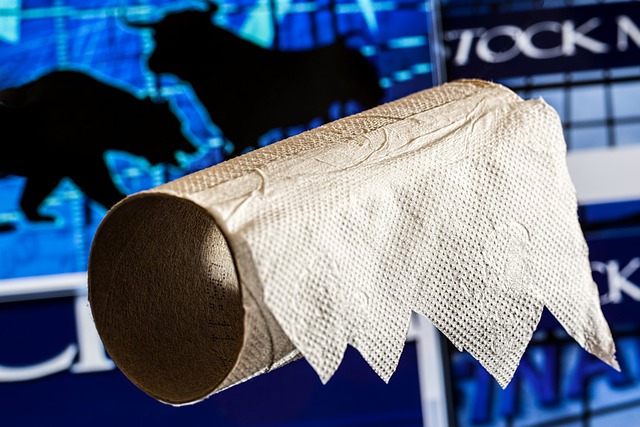Who Do You Blame for the Poor Economy?
“It’s the economy stupid.”
That is what famed Democratic strategist James Carville said in reference to what he believed to be one of the key issues in the 1992 presidential campaign between his boss, Arkansas Gov. Bill Clinton, and incumbent GOP President George H.W. Bush.
Carville is said to have made the remark to campaign staff about where they should focus their attention.
History proved Carville correct that year.
With a recession in full-swing and large numbers of Americans out of work, Clinton went on to defeat Bush in an electoral landslide, and in doing so became the first Democrat to win the presidency in more than a decade.
It did not seem to matter much to voters that under Bush’s watch the Berlin Wall fell, the USSR disintegrated and Iraqi dictator Saddam Hussein was driven from Kuwait.
Are elections won or lost based on the status of the economy? And if so, is that fair?
2022 Inflation: Do You Feel the Pain?
Fast forward 30 years to today. The midterm elections are just around the corner.
Inflation is at a 40-year high and it is making life even more difficult for the working class.
This is especially true for many of the people who live in one of Maryland’s poorest counties located just 70 miles northwest of Washington, D.C.
“Inflation, the cost of gasoline and diesel fuel, the cost of labor, and the increase in the cost of food and paper products is definitely negatively impacting consumers and businesses in Hagerstown and Washington County,” Washington County Chamber of Commerce President and CEO Paul Frey told Baltimore Post-Examiner.
“In particular, restaurants, including the quick serve restaurants, have had to increase their menu prices up to 20 percent. Many independently owned restaurants have posted signs stating that they have had to increase their prices due to the increase in their costs,” he added.
Frey said inflation has ultimately led to less dining out, delays in home improvement projects due to increased contractor fees, and greater difficulty paying heat and energy bills.
“All around people are cutting back on their spending and saving their financial resources to weather the economic downturn that is likely coming over the next 12-18 months.”
Bear Market Exacerbates Economic Concerns
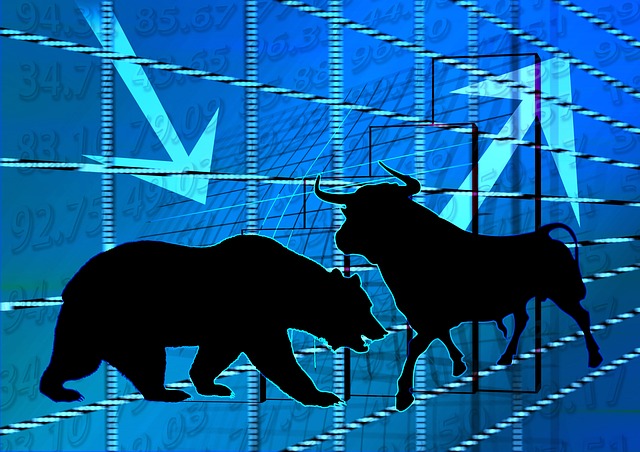
Twenty-twenty-two has so far been the worst year for equities in about 50 years.
Investors looking for a brief reprieve from bad news on Sep. 21 after the Federal Reserve took the expected step of raising its benchmark interest rate by 0.75% for the third time this year had their hopes dashed as the Dow closed 520 points lower amid the prospect of even further rate hikes ahead.
“Restoring price stability is essential to set the stage for achieving maximum employment and stable prices over the longer run,” Chairman Jerome Powell said that day at a news conference. “We will keep at it until we are confident the job is done.”
Wild market fluctuations have been commonplace for the past month or so.
Powell had hinted in a speech at the annual Jackson Hole policy summit on Aug. 26 that the central bank was not yet prepared to stop making aggressive rate hikes to help curb inflation. The Dow fell more than 1,000 points that day. The S&P 500 and NASDAQ indexes each fell by more than 3%. And the brief summer rally that had begun in mid-July-and in which investors had made back much of the money that they had lost during the year-began to fade.
Collectively, U.S. investors are about a half-a-trillion dollars poorer than they were about a year ago, according to a June estimate by the Federal Reserve Bank.
When 401(k) and pension plans take big hits in a major market downtown it means many people who were planning retire are forced to put off those plans and continue working. Parents may have to put off sending their kids to college and buying that new home also may have to be pushed back.
Powell, like his predecessors, often speaks at forums, conferences, and summits. And each time he speaks the market reacts one way or another.
But how much power does Powell really have?
Blame Game: Is it really Biden’s fault?
Many political pundits, some echoing Carville-like sentiments, say the primary responsibility lies with whomever occupies the Oval Office. So, in this case, they blame President Joe Biden.
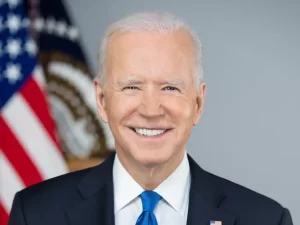
(www.whitehouse.gov)
Presidents tend to get both the credit and the blame for a wide range of issues that are largely beyond their control such as the employment rate and wage and price variations.
Jimmy Carter got blamed for high inflation and stagflation in the late-1970s. Clinton got credit for the strong economy following the dot.com bubble in the 1990s. Donald Trump got credit for near record low unemployment and record-breaking stock market indexes. And today Biden is getting much of the blame for high inflation and high gas prices.
How responsible is Congress for economy policy?
Lawmakers on Capitol Hill approve budgets and tax proposals.
But the partisan bickering that often accompanies debates about the status of the economy tends to leave out a generally apolitical government agency that is led by an individual (Powell), who is an appointee of both Biden and former President Donald Trump.
What Does the Fed do and How Does it Affect the Economy?
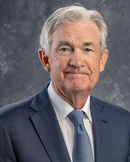
Most Americans probably could write all they know about the Fed in one or two sentences.
The central bank is responsible for setting monetary policy and has been the subject of many strange conspiracy theories. It plays a significant role in the nation’s economy even if that role is indirect and seemingly complex.
The Fed is comprised of 12 regional banks and is operated by a board of governors of which Powell is the chair. Congress passed legislation in 1913 to create the central bank with the goal of fostering stability in the banking system.
The Fed through its Federal Open Market Committee (FOMC) has the power to affect long and short-term interest rates. It does this via changes in its Federal Funds Rate (FFR), which indirectly affects the cost of borrowing among lenders. That indirect causation can ripple over to everything from mortgage rates to car and student loan rates. Lower interest rates make borrowing more affordable. Higher interest rates make borrowing more expensive. The FFR is the only interest rate that the Fed has direct control over.
The Fed also has a mandate to fight inflation and in that fight lies the possibility of driving the economy into a recession in order to keep prices stable.
Is it Time to Reign-in the Fed?
“The Fed chairperson has more power than the President as far as monetary policy is concerned,” George Georgiou, a professor of economics at Towson University, said.
“The Federal Reserve is empowered by Congress to manage the nation’s money supply and the financial system and by extension the rate of inflation/price level and interest rates. This was considered too important to be left to individual Presidents or elected members of Congress who are biased based on their political persuasions,” Georgiou added.
Georgiou emphasized that it is important to distinguish between monetary policy and fiscal policy.
“In the final analysis, the real economic policy power lies with Congress, who have chosen to delegate monetary policy to a semi-independent Fed, in the national interest.”
John Burger, a professor of economics at Loyola University Maryland, agreed.
“The Fed does have significant impact on the economy but it is important to understand that monetary policy works indirectly. Monetary policy impacts the economy through interest rates which represent the cost of borrowing and the incentive to save. The Fed cannot make businesses and consumers borrow more or less it only adjusts their incentives. Fiscal policy (government spending and taxation) actually has a more direct impact on the economy. Most economists agree that it is appropriate to have a central bank that is somewhat removed or independent of the political process. Monetary policy often requires difficult decisions that might be politically unpopular in the short run but are best for the economy in the longer run.”
Boragan Aruoba, a professor of economics at the University of Maryland College Park, said the Fed must remain as apolitical as possible.
“It is true presidential elections have been won and lost based on the economy. However, this has nothing to do with the Fed. The Fed’s goal is to keep the balance and it acts when this balance is disturbed. So the Fed’s actions may indeed create a recession in the next year or so and it is likely that the electorate will blame Joe Biden for this. But this is precisely why the Fed needs to be independent. If the Fed president had to worry about the president’s reelection then he cannot fight inflation the way he does and we would end up with high inflation for a long time (as in the 1970s).”
Aruoba stressed that it is important to think of the Fed as an entity or team rather than just the chair.
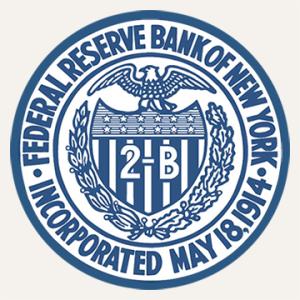
“We use the word “the Fed” loosely. There is the Federal Reserve System which consists of the Board of Governors in DC and 12 regional banks, each with its President appointed by their own boards of directors. The interest rate decisions are made by the FOMC, which consists of the Board members (appointed by the President for 12-year terms) and Bank Presidents. Surely the chairman / chairwoman has a lot of influence but decisions are made jointly and discussion/dissent is common.”
Can the Fed Tame Inflation?
The most recent Consumer Price Index (CPI) report was released on Sept. 13. It said that headline inflation in August was 8.3% higher than at the same time during the previous year. Economists had expected headline inflation to increase by just 8.1%.
Headline inflation from July to August of this year increased by 0.1%, while core inflation, which does not include food and gas prices, increased by 6.3% from the same time last year.
Stock market indexes plummeted following the release of report. The Dow Jones Industrial Average (DJIA) dropped more than 1,200 points and the S&P 500 and NASDAQ indexes suffered comparable losses. It was the worst day for the market since June 2020.
Biden was asked about the report in an interview with CBS’s “60 Minutes” that aired on Sept. 18. Biden responded by saying that his administration will “get control of inflation” and added that he is “optimistic” that health care and energy costs will soon come down. Biden also downplayed the report noting that the inflation rate from July to August rose “just an inch, hardly at all.”
“I think that the Fed is going to maintain a hawkish stance until it sees a more significant improvement in inflation,” Francesco Bianchi, a professor of economics at Johns Hopkins University, said. “This is also a matter of reputation as they want to convey the idea that they are truly committed to bring inflation down.”
How Does Powell Rank Compared to His Predecessors?
There have been 17 fed chairs (including Powell) since the creation of the central bank. Each is nominated by the president and confirmed by the Senate to a four-year term.
After four years the chair must be reappointed and again confirmed by the Senate in order to continue to serve in that position. Because of the independent nature of the central bank it is not uncommon for the chair to be reappointed by a president whose political party is different from that of the president who made the original appointment.
How does Powell’s performance rank compared with that of some of the most well-known Fed chairs such as Arthur Burns (1970-1978), Paul Volcker (1979-1987), Alan Greenspan (1987-2006), and Ben Bernanke (2006-2014)?
“Chairman Powell, after many years, is the first Fed chair to face serious non-financial and external challenges to the Fed’s stability goal. They came in the form of COVID and the Russia-Ukraine war. His last three predecessors did not face these challenges. So, the comparisons may not be fair even when we do it,” Arabinda Basistha, a professor of economics at West Virginia University, said.
Basistha said Powell “probably supervised the biggest swing in the Fed’s focus in recent years, from more jobs to bringing down the inflation.” Basistha said that that transition to a “much more hawkish stance” is something that has not been done since the early 1980s.
“Depending on how the events develop, the most likely closest comparison of his (Powell’s) tenure would be Chairman Volcker’s tenure. But, it is too early to evaluate.”
Will Carville-think prevail this year?
No matter who really is at fault, Carville’s famous refrain might just come true again when voters cast ballots on Nov. 8.
If it does, this time Republicans will benefit, and possibly take back both the House and the Senate as a check on the Biden administration.
And if that happens, pundits likely will say voters blamed Biden for the state of the economy.
But midterm elections are somewhat different than presidential elections because they tend to favor the party that does not occupy the White House.
Democrats lost control of both houses of Congress just two years after Clinton was overwhelmingly elected president.
The same thing happened to Republicans during the first midterm election of President George W. Bush’s second term in office.
Republicans seized control of the House two years after Barack Obama was overwhelmingly elected president and later the Senate after the first midterm election of his second term in office.
And Donald Trump’s GOP lost control of the House just two years after he was elected president but he lost the presidency when the economy was at its strongest.
Will Biden suffer the same fate as the House or make Carville look stupid?

Bryan is an award-winning political journalist who has extensive experience covering Congress and Maryland state government. His work includes coverage of the election of Donald Trump, the confirmation hearings of Supreme Court Justice Brett Kavanaugh and attorneys general William Barr and Jeff Sessions-as well as that of the Maryland General Assembly, Gov. Larry Hogan, and the COVID-19 pandemic.
Bryan has broken stories involving athletic and sexual assault scandals with the Baltimore Post-Examiner.
His original UMBC investigation gained international attention, was featured in People Magazine and he was interviewed by ABC’s “Good Morning America” and local radio stations. Bryan broke subsequent stories documenting UMBC’s omission of a sexual assault on their daily crime log and a federal investigation related to the university’s handling of an alleged sexual assault.

